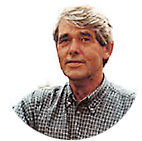Q-Eline was named after Eline, the daughter of Han Fleuren, Boomkwekerij Fleuren’s owner, and his wife Corine.
What makes Q-Eline unique?
- Frost-resistant to about -25°C
- Good stress resistance at low temperatures
- Comparable with C quinces in terms of vigour and fruit size
- Production that equals/exceeds that of C quinces
- Smoother, greener pears in the case of Conference
- Good compatibility with most pear varieties
- Early start of production
Production and availability
In the meantime, research has been carried out and experiences have been gained in different parts of Europe with various pear varieties – in particular Conference, but also BA Lucas and Abate Fetel – grafted on Q-Eline, and 500,000 fruit trees grafted on Q-Eline are now in production worldwide. The intention is for them to replace at least 60 percent of the acreages of C and Adams quinces, with Q-Eline becoming the number-one rootstock for pear growers. To this end, 2.5 to 3 million Q-Eline rootstocks will soon become available on a yearly basis.
Q-Eline’s unique characteristics also make it interesting for new markets. Whereas the existing quince rootstocks have so far been unsuitable for East European countries, Q-Eline offers prospects thanks to its frost resistance and higher production. And that’s very promising indeed, considering the large volumes of fruit that are grown in Eastern Europe.
History and development
Roots in Romania
 The history of Q-Eline can be traced back to the end of the eighties, when Karel Fleuren, the former owner of Boomkwekerij Fleuren in the Dutch town of Baarlo, received five quince rootstocks from a Romanian research institute to thank him for sharing his company’s expertise with the institute. “At the time, the institute’s manager told me that these quince rootstocks were frost-resistant, and that they had spent many years breeding quinces to achieve this,” says Karel Fleuren. “I believed him straight away, because the plants had to be hacked out of the ground with a pickaxe. It was early December and the soil was completely frozen. The cuttings were then wrapped in newspaper and that’s how I took them with me to Baarlo.”
The history of Q-Eline can be traced back to the end of the eighties, when Karel Fleuren, the former owner of Boomkwekerij Fleuren in the Dutch town of Baarlo, received five quince rootstocks from a Romanian research institute to thank him for sharing his company’s expertise with the institute. “At the time, the institute’s manager told me that these quince rootstocks were frost-resistant, and that they had spent many years breeding quinces to achieve this,” says Karel Fleuren. “I believed him straight away, because the plants had to be hacked out of the ground with a pickaxe. It was early December and the soil was completely frozen. The cuttings were then wrapped in newspaper and that’s how I took them with me to Baarlo.”
Propagation and selection of plants with a ‘vase-shaped’ growth habit
Karel Fleuren was not immediately convinced of the potential of his newspaper-wrapped rootstocks, at Fleuren he proceeded breeding with the rootstocks and Fleuren started to propagate and select the quince Fleurenselect, as the rootstock was christened at the time. “I felt obliged to do something with those little plants,” he explains. “That man had given them to me out of gratitude.”
In the stool bed the plants were found to have differing growth habits. A vase-shaped type and a hanging type were distinguished and selected. After consulting PPO in 2000, Fleuren decided to continue with the vase-shaped type. The plants of this type grew beautifully upright, without forming lateral branches, and it was expected that they would be as vigorous as C quinces.
Plant breeders’ rights and production in stool beds
In the period 2000-2004 the Fleurenselect quince was made virus-free by the independent Dutch inspection organisation Naktuinbouw. Once this had been done the company could start propagating the rootstocks and producing propagating material on a large scale.
In 2004 Boomkwekerij Fleuren applied for European plant breeders’ rights, and in the period 2005-2008 the Bundessortenamt in Würzen (Germany) carried out research to assess this application. In February 2009 Fleuren was then granted EU plant breeders’ right for its quince, which had meanwhile been renamed Eline.
In 2006 Fleuren also applied for plant breeders’ rights in the United States, which the company was granted in 2008. A year later that was followed by a similar application in Ukraine, a country with great potential for fruit cultivation. That Plant Patent was granted in 2011.
2008 saw the start of the production of virus-free Eline propagating material by the Vermeerderingstuinen (Propagation Nurseries) in the Dutch town of Zeewolde: another step forwards. And one year later the production of the virus-free Eline quince rootstocks in the company’s own stool beds was a fact.
In 2013 the rootstock was renamed Q-Eline and registered together with its logo.
